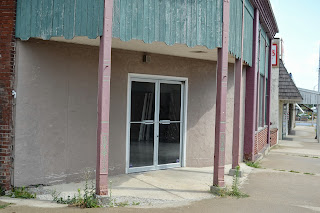A wiki is basically a website that many people can edit. It is a collaboration. If you believe that many hands make light work, then you will reveille in wiki. In the early to mid 90's, code generators were being developed that could translate simple word documents into HTML coded web pages. In those days WYSIWYG [what you see is what you get], interfaces for operating systems and word processors were constantly being upgraded. Recall MS DOS 5.1 and how Windows 3.1 and subsequently Window 95 solidified the movement into graphics. The world wide web at the same time was growing exponentially. The problem with the web's growth was the paucity in talented and knowledgeable website designers or programmers.
 In education, the use of the Internet was immediately obvious for many but coding as site was an obstacle, The solution arrived in the form or bulletin boards like Mustang and later code generators like Contribute and Dreamweaver. But these methods were still cumbersome and not widely adopted. In 1995 the first Wikis appeared. These were websites designed to allow WYSIWYG in put and editing by many people. The key to the definition is website editing by many contributors.
In education, the use of the Internet was immediately obvious for many but coding as site was an obstacle, The solution arrived in the form or bulletin boards like Mustang and later code generators like Contribute and Dreamweaver. But these methods were still cumbersome and not widely adopted. In 1995 the first Wikis appeared. These were websites designed to allow WYSIWYG in put and editing by many people. The key to the definition is website editing by many contributors.Wiki Wiki is an Hawaiian vernacular for "fast." Many people collaborating together to create a website is a Wiki. The most famous and the largest wiki is Wikipedia. In Wikipedia, people around the world and in several languages contribute definitions to topics regularly. Imagine the empowerment you could provide students in your class if you were to assign them the responsibility to create an encyclopedia of world geographic in your classroom. Then, trust them to provide peer to peer review.
Here is a start Thinkinginschool.wikia.com this is a wiki I set up to help research thinking in schools. My goal is to build up a body of research that can help teachers mentor higher level thinking skills while building a professional learning community. Here is an intermediate level of the same wiki above; but with, a different host. The Grade Level Learning Project. In grade level learning, the students were learning from eachother once the project gained momentum. The students worked in teams of three with each having a defined role to play. The artist was tasked with audio, video, and still images that supported the assigned theme. The editor was assigned the task of proofing the copy the was used. The last role was that of leader. The leader filled in all the gaps, coordinated interviews and managed their wiki's overall structure. All three had to deliver an equal amout of participation in the oral report that showcased their site at the end of the project.
My next wiki project is just beginning to take form. I have selected peanut butter work's as the host. I like their educational templates and role based permissions. The free version allows for 100 users composed of either faculty or students. Thinkinschool.pbworks.com is the new site.
I enjoyed this post. Your explanation explains the history of wikis very well. I remember how excited I was to learn of WYSIWIG editors. I had just taken a course in html the year before. I felt like the easy creation of a website changed my productivity! I soon forgot much of my coding knowledge, but having the background in html definitely helped me.
ReplyDelete